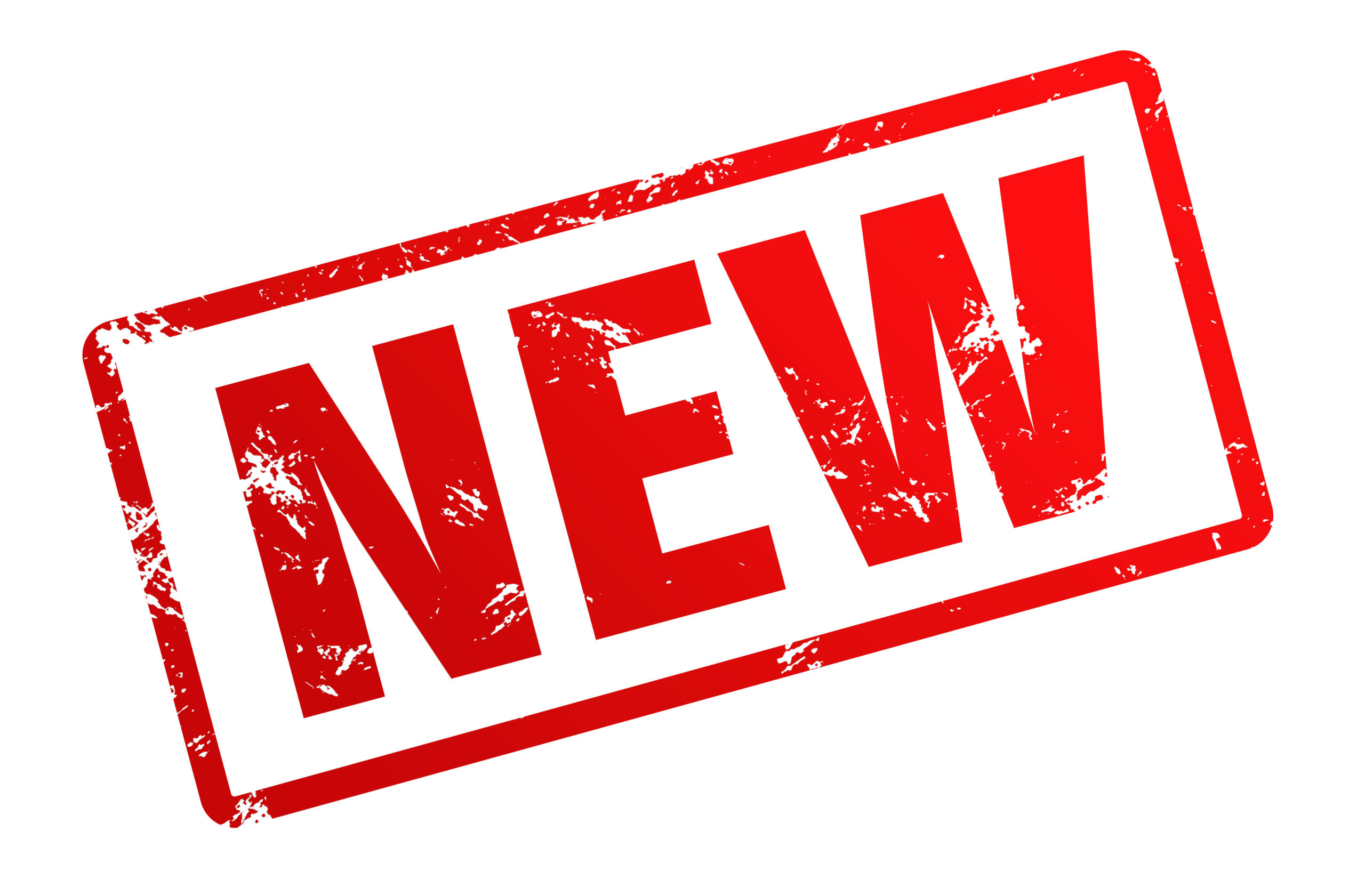Where The New Pope From: Exploring The Origins Of A Global Spiritual Leader
The question of where the new pope from captures the thoughts of so many people across the globe, too it's almost a universal curiosity. When a new spiritual leader steps onto the world stage, people naturally wonder about their beginnings, their background, and the place that shaped them. This interest, you know, goes beyond just simple geography; it really speaks to how we connect with figures who hold such immense influence.
There's a deep human desire, it seems, to understand the roots of anyone who takes on a significant role, particularly one that touches the lives of countless individuals. Knowing someone's starting point can offer a little insight into their perspectives, their experiences, and what they might bring to their new position. It helps us, in a way, feel a bit closer to a person who might otherwise seem quite distant.
So, when the topic of a new pope comes up, this very question of origin quickly follows. People are often eager to learn about the country, the culture, and even the family that nurtured such a person. It’s a moment of considerable change, and that curiosity about where this new figure comes from is, quite naturally, a big part of how we process it all.
- Perry The Platypus Meme
- Fgteev Duddy Backstory
- Jonah Almanzar Nude
- Cindy Lou Who Hairstyle
- How To Charge Your Phone Without A Charger
Table of Contents
- The Journey to Papacy
- Geographical Roots: Unpacking the Origin
- Typical Papal Biographical Elements
- What a New Pope Means for the World
- Frequently Asked Questions About Papal Origins
The Journey to Papacy
The selection of a new pope is a rather unique and deeply traditional process, one that has been refined over many centuries. It’s not just about choosing a leader; it's about discerning someone believed to be guided by a higher purpose. The path to this role is, you know, typically a long one, marked by years of dedication and service within the Church structure.
Early Life and Calling
Long before someone is even considered for the papacy, their early life often shows signs of a deep spiritual inclination. Many individuals who rise to such a position, it seems, feel a strong sense of calling from a very young age. This might mean joining a seminary, pursuing theological studies, or dedicating themselves to community service, often in humble settings. Their initial environment, in some respects, plays a quiet but significant part in shaping their foundational beliefs and values.
These early experiences, you could say, lay the groundwork for their future contributions. They learn about compassion, about serving others, and about the intricacies of faith in everyday life. It’s a period of personal growth and spiritual formation, which is, quite honestly, a critical stage for anyone who might eventually lead millions. The very place they grew up, their family, and their local community, all contribute to this initial shaping of character.
- Nikocado Avocado Leaked
- Mexico Contra Argentina
- How To Say Hello In Indian
- What Does Ligma Mean
- Popular Tiktok Songs 2024
Path Through the Church
After their initial formation, the journey through the Church hierarchy usually begins. This path often involves serving as a parish priest, then perhaps moving into administrative roles within a diocese. Many future popes, you know, gain experience as bishops, overseeing a specific region and its spiritual needs. This gives them practical experience in managing a large organization and caring for diverse communities.
The next major step, typically, is becoming a cardinal. Cardinals are a select group of high-ranking clergy who advise the current pope and, most importantly, participate in the conclave to elect a new one. This role brings them into direct contact with global Church matters and exposes them to a wide array of cultures and challenges. It’s a very demanding role, and it truly prepares them for the global scope of the papacy, should they be chosen.
Geographical Roots: Unpacking the Origin
The question of where the new pope from is always a fascinating one, because it speaks to the global nature of the Church. While the papacy has historically been associated with Italy, particularly Rome, the last century has seen leaders emerge from various continents, reflecting a much broader reach. This shift, in a way, highlights the universal appeal and presence of the faith across diverse cultures.
The Significance of Place
The place a pope comes from holds a lot of meaning, not just for their home country, but for the entire world. A pope from a particular region might bring a unique cultural perspective, a different understanding of social issues, or a specific emphasis on certain aspects of faith. For instance, a leader from a developing nation might bring a strong focus on poverty and social justice, which is, quite frankly, a really important global concern.
This geographical origin can also inspire people in their home region, creating a sense of pride and connection. It shows that leadership can emerge from anywhere, truly emphasizing the universal nature of the Church. It’s a powerful symbol, you know, of inclusivity and global representation, which is very significant in our interconnected world today.
Historical Patterns of Papal Origins
For many centuries, nearly all popes were Italian, a pattern that, you know, deeply rooted the papacy in the historical context of Rome. However, this began to change significantly in the 20th century. We saw, for example, the election of a Polish pope, then a German, and most recently, an Argentinian. These changes, in a way, reflect the Church's growing global identity and its recognition of diverse contributions from around the world.
These shifts are not just random occurrences; they often mirror broader global dynamics and the changing demographics of faith itself. It’s a clear sign, arguably, that the selection process is looking beyond traditional boundaries to find leaders who can connect with a wider range of people and address contemporary challenges from varied viewpoints. This historical progression, it turns out, is a rather compelling story of adaptation and outreach.
Understanding "New" from Our Provided Text
When we ask about "where the new pope from," we're looking for specific geographical information, which, quite honestly, isn't found in the text you provided to us. The document, you see, talks a lot about "new" things, but in a very different context. For example, it mentions "a new branch b branching off of master" in a coding environment, which is a fresh start for development. It also discusses creating "new { }" objects, or even a "new virtual environment," which represents a clean, isolated space for work.
The text also refers to "new lines" in written content, like how the `\n` symbol creates a new paragraph, or how to "add new column into my original data source" in PowerBI. While these are all about "new" elements emerging, they relate to technical processes—like Git, HTML, or data management—not the specific origin of a spiritual leader. So, while the concept of "newness" is present, the specific geographical details for a pope are not, you know, something we can pull from that particular source. It’s a different kind of "new" altogether, really.
Typical Papal Biographical Elements
While we can't provide specific biographical data for a currently unnamed "new pope," we can outline the common elements that typically make up the life story of someone who ascends to the papacy. This table illustrates the kinds of details that are usually considered significant.
| Category | Typical Information |
|---|---|
| Birth Name | The given name of the individual before their election. |
| Birthplace | The city and country where the person was born. This is, you know, the core of the "where from" question. |
| Date of Birth | The year, month, and day of their birth. |
| Nationality | The country of their citizenship at the time of their election. |
| Early Life & Family | Details about their upbringing, family background, and early education. This might include information about their parents' professions or any siblings. |
| Religious Education | The seminaries or universities where they studied theology and philosophy. |
| Ordination | Date and location of their ordination as a priest. |
| Episcopal Consecration | Date and location of their consecration as a bishop. |
| Elevation to Cardinalate | Date of their appointment as a cardinal. |
| Key Roles Held | Significant positions within the Church before becoming pope, such as archbishop, head of a Vatican department, or leader of a religious order. |
| Languages Spoken | The various languages they are proficient in, which is, quite honestly, very important for global communication. |
| Notable Works/Writings | Any significant books, encyclicals, or theological contributions they made. |
What a New Pope Means for the World
The arrival of a new pope is a moment of profound significance, stretching far beyond the walls of the Vatican. It represents, in a way, a fresh chapter for a spiritual community that spans continents and cultures. This event, you know, generates discussion and reflection among believers and non-believers alike, simply because of the immense influence the role carries.
Impact on Faith and Community
For millions of faithful people around the world, a new pope brings renewed hope and a sense of direction. The leader’s initial messages, their chosen name, and their first actions often set the tone for their pontificate. This can inspire deeper spiritual engagement, encourage charitable works, and strengthen community bonds within parishes and dioceses globally. People often feel a renewed connection to their faith, which is, really, a powerful thing.
The new pope’s emphasis on certain issues, or their particular style of leadership, can also influence how the Church addresses contemporary moral and social questions. It might spark new conversations within religious communities about how to live out their faith in a rapidly changing world. This impact, you see, is very personal for many, shaping their daily spiritual lives and their outlook on the future.
Broader Global Connections
Beyond the religious sphere, a new pope also plays a very considerable role on the global stage. The leader of such a large and influential body often acts as a moral voice, speaking out on issues like peace, human rights, poverty, and environmental protection. Their statements can influence international diplomacy and inspire global movements for justice. This kind of influence, you know, transcends religious boundaries, affecting policies and public opinion worldwide.
The new pope’s origins, as we discussed, can also shape these global interactions. A leader from a specific region might bring particular insights into global conflicts or humanitarian crises relevant to that area, offering a fresh perspective. This can lead to new dialogues and collaborations with other religious leaders, political figures, and international organizations, which is, quite honestly, a very important aspect of their role in our current moment. For more general information about the papacy, you might find resources on a reputable source about the Vatican.
Frequently Asked Questions About Papal Origins
Here are some common questions people often ask about the origins of a pope, reflecting the widespread interest in this significant figure.
1. How is a new pope chosen, and does their origin play a formal role in the selection?
A new pope is chosen through a process called a papal conclave, which involves cardinals under the age of 80 gathering in the Sistine Chapel. They vote secretly until a candidate receives a two-thirds majority. While the cardinals consider many qualities, including a candidate's pastoral experience, theological depth, and leadership skills, their geographical origin does not play a formal, stated role in the rules of selection. However, you know, the cardinals themselves come from all over the world, so their diverse perspectives naturally influence the choice.
2. Have popes always come from Italy, or has that changed over time?
For many centuries, particularly from the 16th century until the mid-20th century, nearly all popes were Italian. This tradition, you see, was very strong. However, this pattern has significantly changed in recent decades. The election of Pope John Paul II from Poland in 1978 marked a very notable shift, followed by Pope Benedict XVI from Germany, and Pope Francis from Argentina. This shows a clear movement towards, arguably, a more globally representative leadership, reflecting the Church's worldwide presence.
3. Why does the origin of a pope matter to people outside their home country?</



Detail Author 👤:
- Name : Chanel Kirlin
- Username : isidro30
- Email : kiara.koelpin@lynch.biz
- Birthdate : 1985-08-03
- Address : 935 Opal Neck Port Ronaldo, OK 13016-2137
- Phone : (463) 408-6166
- Company : Kirlin, Borer and Stamm
- Job : Rough Carpenter
- Bio : Qui laborum qui neque ab laboriosam unde. Illo amet fugit qui. Voluptatum aut omnis eveniet tempora nisi voluptas ut. Quas incidunt qui accusantium iste laudantium non qui fugiat.
Socials 🌐
facebook:
- url : https://facebook.com/mgoodwin
- username : mgoodwin
- bio : Aut dignissimos quos amet hic voluptatem eum ut possimus.
- followers : 3755
- following : 692
twitter:
- url : https://twitter.com/mgoodwin
- username : mgoodwin
- bio : Quo non rerum exercitationem numquam aut reprehenderit. Sapiente doloribus et ipsum non consequatur eum.
- followers : 5037
- following : 1614
tiktok:
- url : https://tiktok.com/@myahgoodwin
- username : myahgoodwin
- bio : Incidunt dolores numquam placeat id qui ut. Sint alias qui neque dolorem.
- followers : 5307
- following : 663
linkedin:
- url : https://linkedin.com/in/goodwin1979
- username : goodwin1979
- bio : Debitis officia nihil fuga in.
- followers : 2184
- following : 2295